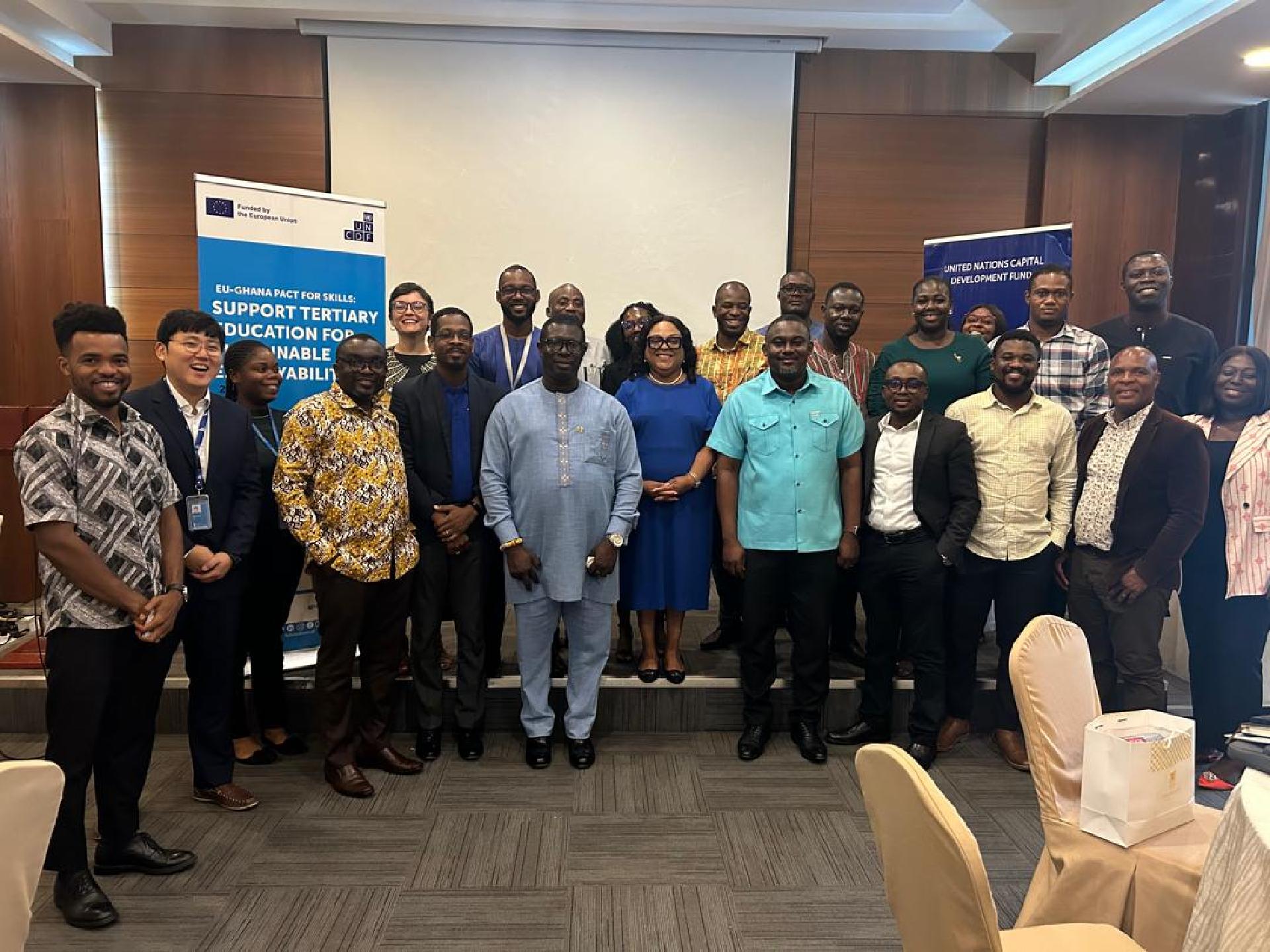As a tertiary student, do you ever feel like the disconnect between what you are learning in school and what the job market demands is significant? Bridging that gap is the driving force behind a new initiative led by the United Nations Capital Development Fund (UNCDF), with support from the European Union and in collaboration with the Ghana Tertiary Education Commission (GTEC) and relevant stakeholders.
“Our objective is to make the ‘education to employment’ journey less daunting and more empowering for young Ghanaians,” said Arianna Gasparri, Technical Specialist, UNCDF. “GTEC plays a key role in this process, and through their leadership, there is a growing need to strengthen coordination with a broader range of stakeholders from both academia and the private sector.”
Recognizing the urgency of bridging the education-to-employment divide, the Ministry of Education has thrown its weight behind the initiative, viewing it as a timely intervention to future-proof Ghana’s workforce.
“At the Ministry of Education, we see this initiative as a critical step toward transforming Ghana’s tertiary education landscape,” said Director of Tertiary Education, Ministry of Education. “By aligning curricula with the needs of the job market, especially in emerging sectors, we are laying the foundation for a future where every graduate can contribute meaningfully to national development.”
Recently, UNCDF convened a workshop, bringing together minds from government, academia, and the private sector, to lay the groundwork for a transformative National Advisory Group (NAG). This advisory group will be a structured coordination mechanism that would strategically advise on policies and programs to enhance graduate employability nationwide with a particular focus on the burgeoning green and digital sectors.
The workshop aimed to define the NAG's mandate, structure, and operational framework. This meant clarifying its scope, structure, and membership, while also securing stakeholder buy-in. Participants delved into crucial discussions around NAG's strategic advisory role, its membership composition, and its governance model. Emphasis was placed on ensuring balanced representation across sectors and regions, clear decision-making processes, and a sustainable financial model to ensure the NAG's long-term sustainability.
The discussions extended beyond structure to the practicalities of bridging the education-employment divide. Participants explored key thematic areas: graduate employability and workforce readiness, curriculum alignment with labor market needs, and academia-industry linkages. Participants identified critical gaps in digital literacy, career services, and industry collaboration, and outlined tangible steps to address them.
As a key player in shaping the future of tertiary education, the Ghana Tertiary Education Commission (GTEC) is excited to be part of this initiative that aims to redefine graduate employability in our nation. “This initiative aligns with our commitment to modernize tertiary education and ensure that every graduate leaves school with skills that are relevant, practical, and valued by industry,” remarked John Dadzie-Mensah (Director Policy, Planning & Research). “It’s not just about creating jobs; it’s about creating futures.”
The National Advisory Group can serve as a key mechanism for implementing the Graduate Employability Framework by integrating industry insights into curriculum design and strengthening partnerships between academic institutions and the private sector.
The workshop concluded with key recommendations, emphasizing the need for clear roles, data-driven decision-making, and stakeholder incentives. The participants recognized the importance of defining membership profiles to ensure effective contributions and establishing robust data validation mechanisms. The next steps are clear: finalizing the NAG's Terms of Reference by April and convening the inaugural meeting by June or July 2025. This initiative seeks to create a more responsive and effective tertiary education system that meets the evolving needs of the labor market and contributes to sustainable economic growth and GTEC is excited to be part of this transformative journey.

